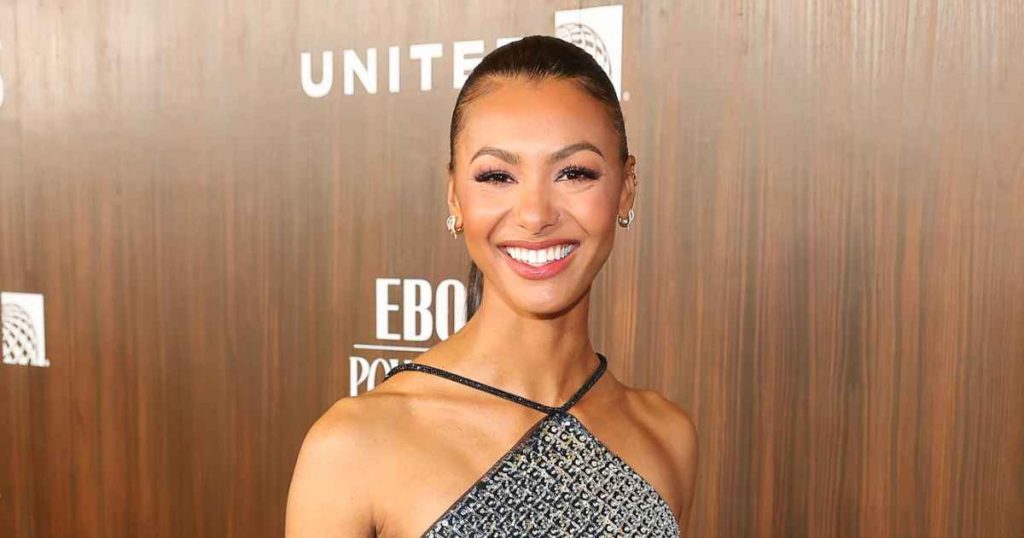Malika Andrews, a prominent sports journalist at ESPN, recently opened up about the painful experience of facing accusations of racial bias in her reporting. In a candid conversation on DeMar DeRozan’s mental health series, “Dinners With DeMar,” Andrews addressed the allegations head-on, expressing the hurt caused by such unfounded claims. The crux of the criticism stems from the perception that Andrews, who is of mixed race and married to a white man, harbors animosity towards Black men. This narrative, she asserts, is entirely untrue and deeply upsetting, particularly when her family background is used as supposed evidence. The sting of these accusations, she admits, is amplified by the public nature of her profession and the widespread reach of social media. Whether the criticism originates from a prominent figure or an anonymous online commenter, the impact is equally hurtful when the allegations lack merit.
The accusations against Andrews underscore the complex and often fraught landscape of race and media in contemporary society. Her experience highlights the challenges faced by journalists of color, particularly women, who navigate a media environment where their objectivity can be questioned based on their identity. The critique aimed at Andrews appears rooted in the belief that her racial background and marital status somehow dictate her journalistic choices, thereby undermining her credibility and professionalism. This type of scrutiny reinforces the harmful stereotype that individuals of mixed-race heritage cannot be unbiased or impartial, forcing them to constantly defend their objectivity against prejudiced assumptions.
One specific incident that fueled these accusations involved Andrews’ coverage of the 2023 NBA Draft. Former NFL player Dez Bryant publicly criticized her reporting, suggesting that she focused disproportionately on the criminal charges against Black draft pick Brandon Miller while neglecting to adequately cover allegations against white draft pick Josh Giddey. Bryant’s comments, disseminated through social media, accused Andrews of harboring a racial bias and questioned her upbringing and professional integrity. This public condemnation amplified the existing narrative surrounding Andrews, contributing to the spread of misinformation and intensifying the scrutiny she faced. The incident demonstrates the power of social media to both amplify legitimate critique and disseminate harmful, unsubstantiated accusations, creating a challenging environment for journalists navigating sensitive topics related to race.
Andrews, while acknowledging the pain caused by these accusations, also emphasized the importance of self-reflection and accountability in her journalistic practice. She recognizes that her work, like anyone’s, is not without flaws and welcomes constructive criticism. Her willingness to acknowledge potential shortcomings and strive for improvement reflects a commitment to journalistic integrity and growth. However, she distinguishes between legitimate critiques of her work and baseless accusations rooted in prejudice. While open to feedback and self-improvement, she firmly rejects the narrative that paints her as prejudiced against Black men.
The attacks on Andrews also expose a broader societal issue: the blurring lines between legitimate criticism and personal attacks fueled by prejudice. In the digital age, where social media platforms provide unfettered access to public figures, the potential for unchecked dissemination of misinformation and harmful rhetoric is amplified. This creates a challenging environment for journalists, particularly those from marginalized groups, who may be subjected to disproportionate levels of scrutiny and targeted harassment. The case of Malika Andrews serves as a stark reminder of the need for critical media literacy and the importance of distinguishing between legitimate critique and attacks based on identity.
The conversation between Andrews and DeRozan sheds light on the emotional toll these experiences take on individuals in the public eye. Andrews’ admission that the accusations “hurt” underscores the human cost of online harassment and the importance of fostering empathy and understanding in our digital interactions. While she maintains a professional demeanor and continues to strive for excellence in her work, she also acknowledges the emotional impact of such targeted attacks. This vulnerability emphasizes the need for a more compassionate and responsible approach to online discourse, one that prioritizes respect and recognizes the human beings behind the public personas. The incident involving Malika Andrews serves as a crucial reminder of the responsibility we all share in creating a more equitable and inclusive online environment.

